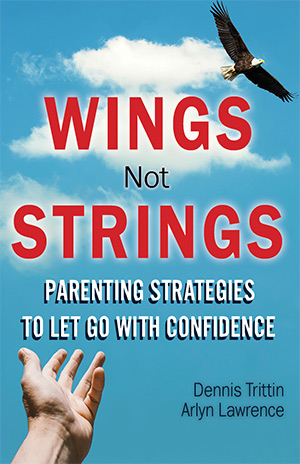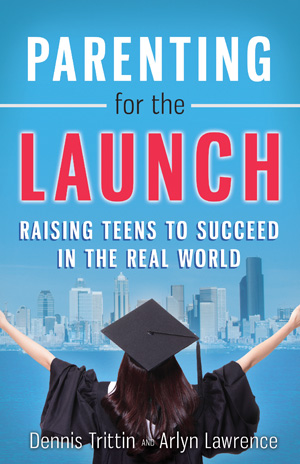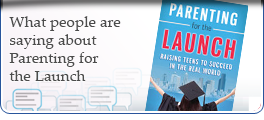From Lemons to Lemonade: Turning Trials to Triumph
3/24/2020 10:36:42 PM
No matter who we are, we eventually face trials and crises. They usually happen to us individually (death, sickness, job loss, divorce), but in rare situations, like now, it affects us all. Although the degree and nature of our burdens vary, in generalized crises no one goes unscathed—especially in one that involves both our health andfinances. That’s a double whammy that hits extra hard, and we’re all hurting.
The question isn’t so much whether we’ll face adversity, but how we handle it when it’s our turn. For any number of reasons, some deal with it better than others. Whether you, or someone you know, struggle mightily during trials, know that there are strategies that will help you react constructively, especially when a crisis is global. To that end, and in light of the coronavirus crisis we’re all navigating, we offer these suggestions to you:
- Envision the other side of the valley. During times of crisis, it’s more natural to stay in the valley and despair in the moment. Yes, we need to fight our battles today, but we also need to remain hopeful. We have faced many crises in our nation’s history and came out stronger each time. Hope is an incredibly powerful antidote to fear. When this crisis has run its course (and it will!), you’ll be able to look back with new perspectives and position for an even brighter future.
- Focus on what you can control and leave the rest to faith. When we’re faced with highly complex and unpredictable situations, it’s easy to get bogged down in worry about things we can’t control. The “what ifs.” Granted, we want to prepare for different scenarios, but once we’ve done that, our efforts are best spent on working our plans—doing our best, day-by-day, to move forward. Then, to the best of our ability, we rely on our faith for the outcome.
- Invest in yourself, your relationships, and in others. In difficult times, it’s especially important that we allow ourselves quiet time to reflect and/or pray. As a person of faith, I can’t possibly describe how beneficial this is for me. My prayers and petitions provide a sense of peace and perspective like no other. At the same time, it’s essential to ramp up our investment in our friends and loved ones. The at-home time and togetherness we are now experiencing is providing endless opportunities to take our relationships to new levels. So, let’s make the most of it. Finally, there is nothing more meaningful to the spirit, or more impactful to your community, than helping others. However you can, find ways to offer your compassion and talents to those who can benefit.
- Set, and abide by, your highest priorities. It goes without saying that our distraction factor during trials rises exponentially. Sure, we need to be flexible, especially with our kids, but the more attuned we are to our priorities, the more we’ll accomplish and the less anxious we’ll be.
- Consider what brings you peace, joy, and gratitude. Crises have a way of clarifying what’s really important. And, they’re usually the simple things, aren’t they? Our loved ones. Cherished memories. Our dreams. The beauty of nature and art. The inspiring stories of people who have impacted the world. What music, books, or movies lift you up? What, and who, makes you laugh? What encourages you most? What environments allow your spirit to soar? What scrapbooks or albums capture your greatest memories? What picture books or clips show your favorite scenery? Whatever they are, immerse yourself in them. Stay positive with all of your might.
- Teach your children valuable life skills. With schools suspended or out for the year, parents have an unusual opportunity to teach children practical life skills they’ll eventually need for adulthood. Examples include banking, budgeting, laundry, cooking, nutrition, landscaping, housecleaning, changing a tire, self-defense, career exploration/surveying, resume writing and interviewing, identity theft prevention, time management, and manners. Trust me, one day they’ll thank you for it.
- Heighten your discernment. It’s sad, but true, that many people and media sources use crises to instill chaos and fear to advance an agenda, rather than focus on objective facts and information that is beneficial to the public. They subscribe to the “bad news sells” philosophy. Unfortunately, it has become increasingly difficult to trust media outlets and articles, especially in this election year. So, here are some tips to help you identify red flags of bias and disinformation in the media:
- Is the headline/commentary designed to alarm or inform?
- Are the sources balanced and credible or skewed in favor of an agenda?
- Are the questions/commentary/stories trivial or substantive?
- Are sources named? (Be on guard for any article or interviewer question based on “sources say” or “some people say.”)
- How much of an article/interview is based on objective facts or opinion/politics?
- Are they generalizing an unusual occurrence to incite fear?
- Does the media outlet report the good and the bad?
- Do interviews/articles feature supposed experts who have highly extreme viewpoints that are ill-supported and designed for personal gain/exposure?
- Be aware of human behavioral tendencies. As a former analyst and investment manager, I was fascinated by studies of human behavior that impacted financial decisions. Here are a few relevant examples:
- Fear is more powerful than greed. Stock market declines are much swifter and sharper than corresponding increases. Investors are more prone to panic selling than panic buying.
- The more frequently investors look at their portfolios, the more risk-averse they become. This is because they react more strongly to losses than to gains.
- Investors are heavily influenced by emotion when making decisions. They have a notoriously poor record of timing their investments because of a “buy high, sell low” mentality.
By now, you can see how these tendencies also apply to our lives beyond finances. Translated: 1) we become more fear driven and often focus on negative news during crises, 2) we become more distressed and anxious the more frequently we consume news and social media, and 3) our decision-making objectivity can get compromised when we’re driven by our emotions. So, consider whether/how these human tendencies might be affecting you, and whether your emotions are being influenced by how frequently you consume news.
When this crisis eventually blows over, you’ll be able to look back and consider what you’ve learned through the journey—about yourself and the world around you. Did you make the most of it? What new perspectives and insights did you gain? How did it affect your relationships? Did it change your priorities? What life lessons did you learn? Your children? How will your future be informed by this trial?
Friends, this is your opportunity to shine. Let’s make the best lemonade we can.
Be well,
The LifeSmart team
Tagged as: Covid19, coronavirus, pandemic crisis, crises, handling crises, adversity, faith, overcoming adversity, life skills, life smart, positivity,



















